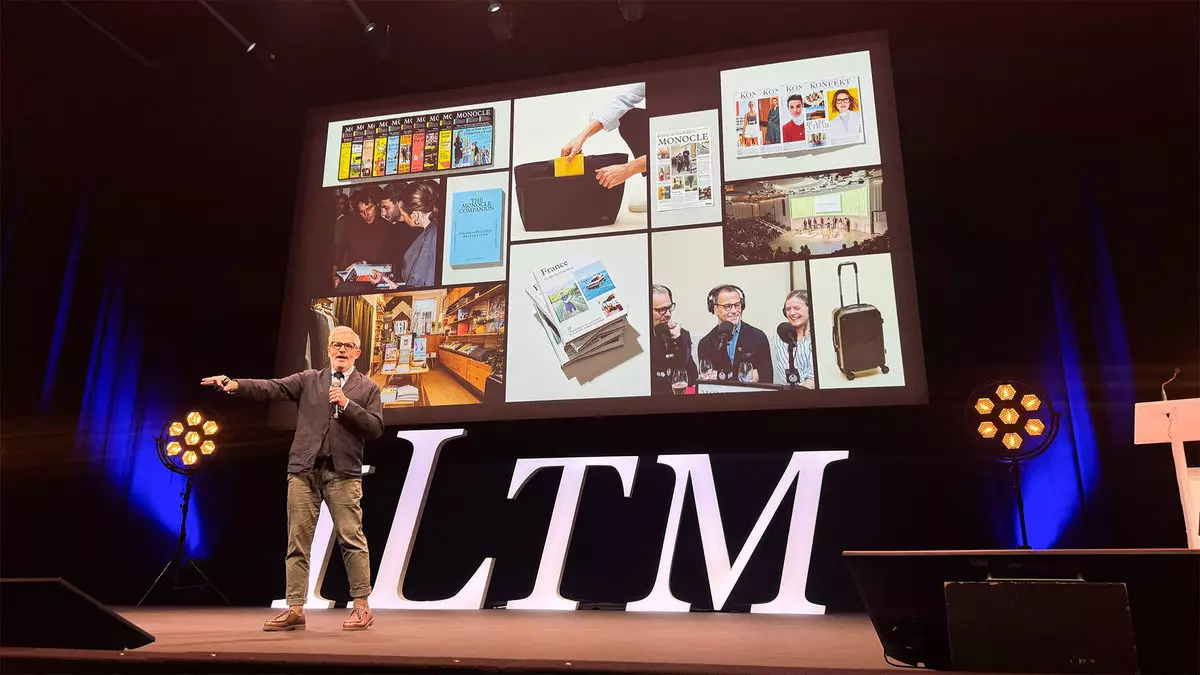In the ever-evolving landscape of hospitality, guest experience remains paramount. While travelers often suppress minor annoyances during their stays, influential voices like Tyler Brule, the editorial director of Monocle, are stepping forward to illuminate common grievances within the industry. During a recent address at the International Luxury Travel Market (ILTM) in Cannes, Brule shared a series of pet peeves derived from his extensive travels across a dozen cities, highlighting crucial areas where luxury hotels can enhance their offerings.
Brule’s insights resonate not only with industry professionals but also with everyday travelers whose expectations have transformed significantly due to recent global events. By candidly addressing these issues, he invites a much-needed dialogue concerning the hospitality industry’s future.
One of Brule’s main complaints centers on the increasing prevalence of QR codes, which emerged as a response to the pandemic’s demands for contactless solutions. While digital menus may streamline operations, Brule criticizes their replacement of tactile, immersive experiences that enhance dining—a pillar of hospitality. “We want texture,” he insisted, advocating for the timeless charm of a leather-bound menu that adds a touch of luxury and sophistication. The shift towards screens can alienate guests who crave personal, sensory connections during their dining experiences.
This technological overreach extends beyond menus—it permeates other facets of hotel experiences, such as digital check-ins. Brule goes against popular sentiment by emphasizing the potential stress involved in navigating complicated tablet interfaces, particularly in a foreign language. He suggests that luxury stays should mitigate digital interaction rather than amplify it, urging the industry to prioritize personal engagement over technological convenience.
Brule also raised concerns regarding the transformation of hotel lobbies into makeshift offices. With the rise of remote work and digital nomadism, a sense of decorum and aesthetic value in these public spaces is lost, as guests conduct business calls amidst the serene ambiance that once defined luxury hotels. This shift begs the question—should a place designed for relaxation and social engagement transform into a work environment?
He proposes a solution: reintroducing designated phone booths to restore balance and respect for the communal atmosphere. By creating specific spaces for work, hotels can reclaim their lobbies as areas of leisure and connection rather than allowing them to devolve into chaotic hubs of productivity.
Another significant observation by Brule involves the blurring of lines between staff and guests due to similar fashion choices. He pointed out that the shift towards more casual, neutral attire among hotel staff has led to confusion regarding service roles. In luxury hospitality, where differentiation and brand identity are paramount, Brule advocates a revival of formal uniforms—designating staff clearly while enhancing the hotel’s overall aesthetic.
By reinstating well-designed uniforms, hotels can bolster their branding and create a more cohesive guest experience. In a world where guests often seek connection and service, a distinctive visual presence among hotel staff is vital.
Brule’s critique does not end with aesthetics; it extends to operational hours, particularly regarding hotel bar services. He notes the frustrating trend of early closing times in many luxury hotels—specifically in regions like Asia. By questioning why bars close at 9:30 PM, he ignites a conversation about the need for vibrant nightlife that caters to guests who seek after-hours experiences.
Luxury hotels should reconsider their evening offerings and adapt to the cultural significance of nightlife in various regions. Late-night experiences add depth to a guest’s stay, providing opportunities for socialization and relaxation after a day of exploration. Reviving this element can enhance a hotel’s allure and better align it with guests’ desires for a well-rounded trip.
Brule’s candid reflections serve as a clarion call for the hospitality industry, encouraging operators to thoughtfully reconsider the features and services that define the modern luxury experience. Emphasizing a return to tangible, memorable guest interactions over sterile digital solutions may mark a crucial turning point. The future of luxury hospitality hinges on balancing technological convenience with the enchanting experiences and personal touches that guests long for. The hope remains that by addressing these pet peeves, the industry can adapt and flourish, fostering environments that prioritize genuine hospitality.


Leave a Reply